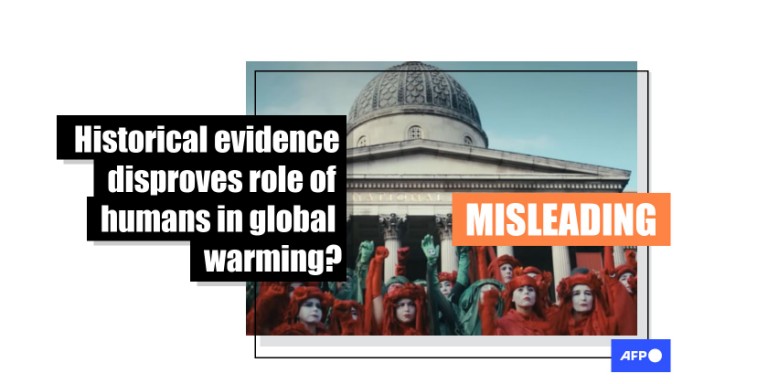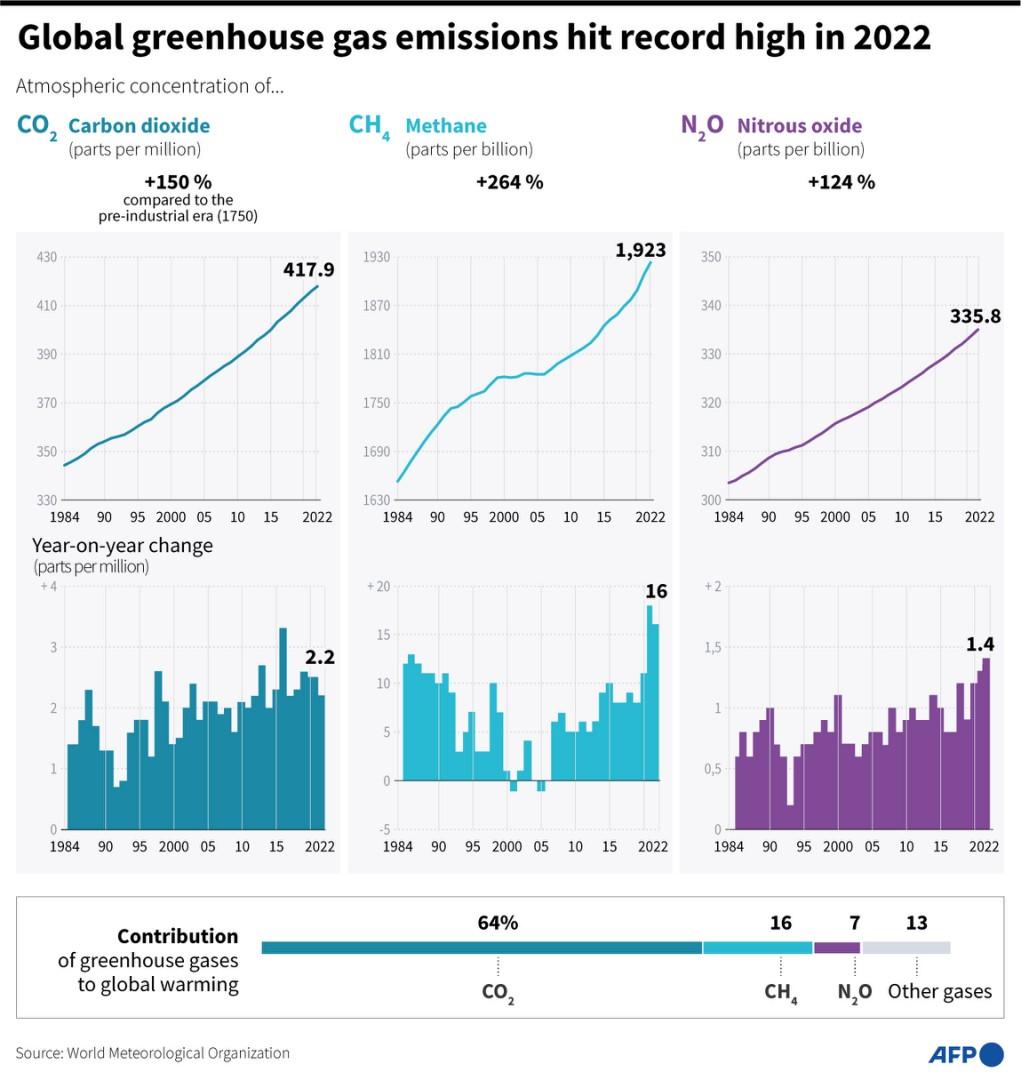
Movie recycles old myths about CO2, climate change
- This article is more than one year old.
- Published on April 24, 2024 at 16:38
- 3 min read
- By Manon JACOB, AFP USA
"'The question of whether CO2 drives the climate is easily resolved. You can look back in time over hundreds of millions of years—CO2 levels have changed radically many times,'" says Wide Awake Media, a popular conspiratorial X account, in an April 12, 2024 post.
"'Did this cause temperature change? No, absolutely not. CO2 has never driven temperature changes in the past. Never.'"
The post quotes Tom Nelson, the producer of a film titled "Climate: The Movie (The Cold Truth)."

Released in March, the film has gathered hundreds of thousands of views on platforms such as YouTube. It features a cast of well-known climate skeptics and recycles debunked myths that Earth is in a CO2 "famine" and that solar activity causes the planet to warm, as other independent fact-checking outlets have reported.
Naomi Oreskes, a professor of the history of science at Harvard University (archived here), told AFP the claim spreading online is "based on a half-truth -- as so much disinformation is."
The UN Intergovernmental Panel on Climate Change (IPCC) says it is "unequivocal that human influence has warmed the atmosphere, ocean and land" -- and that CO2 is the main culprit (archived here and here).
"Scientists have worked very hard to rule out all other possibilities," Travis Rector, an astronomer at the University of Alaska-Anchorage (archived here), told AFP in 2022.
"The only explanation that is possible is the addition of these greenhouse gases through human activity."

'Large temperature swings'
NASA data show human activities have raised atmospheric CO2 by 50 percent in less than 200 years (archived here).
The influx of CO2 has trapped heat in the atmosphere, warming the planet by more than one degree Celsius above pre-industrial levels, according to IPCC scientists (archived here).
The greenhouse effect has made Earth warm enough for humans to survive comfortably. The natural phenomenon functions as an invisible blanket of nitrogen, oxygen and other gases that envelops our planet, allowing it to retain the Sun's heat (archived here).
However, human activities such as burning coal and oil inject additional CO2 into the atmosphere, which traps more solar radiation.
CO2 has not always been the historical driver of natural climate cycles. But Bärbel Hönisch, a professor at Columbia University's Lamont-Doherty Earth Observatory (archived here), told AFP that the greenhouse gas has "acted as an amplifier" -- a point demonstrated in multiple scientific studies and reports (archived here and here).
"Whether CO2 drove or only amplified temperature rise in the past is irrelevant for our current time," she said April 16, 2024. "Today we are increasing CO2 at a rate that may be faster than ever before in the geological record."
Yochanan Kushnir, another Lamont-Doherty Earth Observatory professor (archived here), concurred.
"CO2 concentration quickly rose from the pre-industrial level of about 280 parts per million (ppm) to 300 ppm in the early 20th century to about 425 ppm today -- way higher than at anytime during the last 800,000 years," he said April 23.
Hönisch said that "without the role of CO2," Earth "would not have experienced such large temperature swings."
'Overriding' orbital cycles
Earth has experienced long periods of extreme cold -- including ice ages, which represent regular cycles triggered by variations in the planet's axis and orbit around the Sun (archived here). While small, these changes have a powerful effect on how much heat reaches Earth.
Based on these orbital cycles, Hönisch said the planet should be heading toward a cooling phase (archived here).
"The fact that we are not heading that way is because of anthropogenic greenhouse gas emissions, which make the planet warmer than it should be at this time," she said.
Oreskes of Harvard University agreed.
"Today human-generated CO2 is driving warming, so much so that it has overridden the natural climate variability caused by orbital variation," she said.
"What is going on now is historically unprecedented, and that is precisely why it is alarming."
More of AFP's reporting on climate misinformation is available here.
Copyright © AFP 2017-2026. Any commercial use of this content requires a subscription. Click here to find out more.
Is there content that you would like AFP to fact-check? Get in touch.
Contact us




